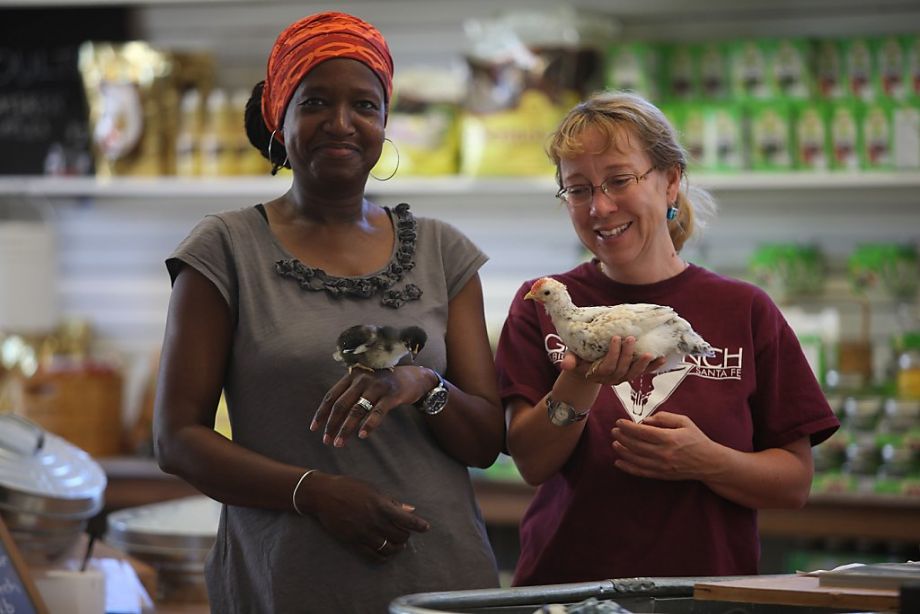By Tammerlin Drummond
The Oakland Tribune.
One of the biggest challenges for people trying to start or expand a small business is they can’t qualify for a loan under banks’ strict lending guidelines. This is especially true in underserved communities.
Many entrepreneurs resort to taking out high interest personal loans on their credit cards, a high risk proposition.
Enter Kiva. The San Francisco nonprofit first began using crowdsourcing in 2005 to make microloans to poor people in foreign countries.
In 2011, Kiva brought its innovative model to the U.S. to give domestic small businesses a much-needed financial boost.
In Oakland, Kiva Zip loans have helped finance 50 businesses, including bagel and bakery shops, soap makers, clothing stores and suppliers of do-it-yourself urban farm supplies.
Eligible small business owners and startups can apply for Kiva Zip zero-interest loans — up to a maximum of $5,000 initially. Applicants don’t need collateral or proof of assets. But they must have a “trustee” — a person or individual within the community to publicly vouch for their reputation and business plan. Kiva staff review the applications and select the recipients. When the business owner repays his loan — the time limit is two years — the money goes back to investors, who are then free to reinvest in another Kiva Zip business.
According to Kiva Zip, there have been only a tiny fraction of defaults.
Yolanda Burrell, co-owner of Pollinate Farm & Garden, got a Kiva Zip loan for $5,000 a year ago. In 2013, she and her partner, Birgitt Evans, had used their savings to open the Fruitvale store, which sells a vast array of supplies for home gardens and small-scale livestock raising to people who grow and raise their own food.
Customers would wander in and say they couldn’t find the store because there wasn’t a sign. “We couldn’t pretty up the building anymore than the lipstick on the pig that we had already done because we didn’t have any money for anything but merchandise,” Burrell said.
She used the loan to create a giant dandelion mural on the side of the building that is visible from Interstate 580. Burrell also built nursery benches to better display the plants.
She has also gone from Kiva Zip borrower to Kiva Zip lender.
“You’re sitting at this website, and you’ve got all of these different businesses you could be supporting, whether it’s fashion, food or farm stores,” she said. “If you have $20 or $5, it can really make a difference.”
Each business owner has a Kiva Zip web page that tells their personal story, so when you click on it, you get the sense that you are meeting a real flesh and blood person.
“If an individual is only loaning $5, his risk tolerance is higher,” said Jonny Price, senior director of Kiva Zip. “So we can make loans to businesses that might be deemed too risky by a conventional bank. I also know as an individual, I’m going to be helping someone by giving him an economic opportunity he might not otherwise have.”
Kiva Zip has raised $5 million for small business in the U.S. Kiva, the parent company for Kiva Zip, has raised more than $650 million dollars globally from 1.2 million investors, according to company officials.
Oakland Mayor Libby Schaaf is one of Kiva Zip’s most enthusiastic supporters. As a councilwoman, Schaaf got the ball rolling for the city to become a Kiva Zip trustee. Oakland was the first city in the country to become a Kiva Zip trustee. Most of the trustees have been individuals, nonprofits and other organizations.
Schaaf is also a Kiva Zip trustee. She has endorsed three businesses and donated money. (Trustees don’t have any financial liability but are responsible for helping to locate and vouch for businesses.)
“It’s almost like the old-fashioned immigrant associations that would lend one another money, then pay it back,” Schaaf said. “It’s a great way for the city to support its smallest businesses that also tend to hire locally.”
Oakland officials want to expand the program’s reach. “My goal is to look for those startups in East Oakland, Fruitvale and West Oakland and help them get off the ground,” said Aliza Gallo, economic development manager for the city’s Department of Economic and workforce development.
For more information, go to the Oakland Business Assistance Center’s website at www.oaklandbusinesscenter.com.














































































































































































































































































































































































